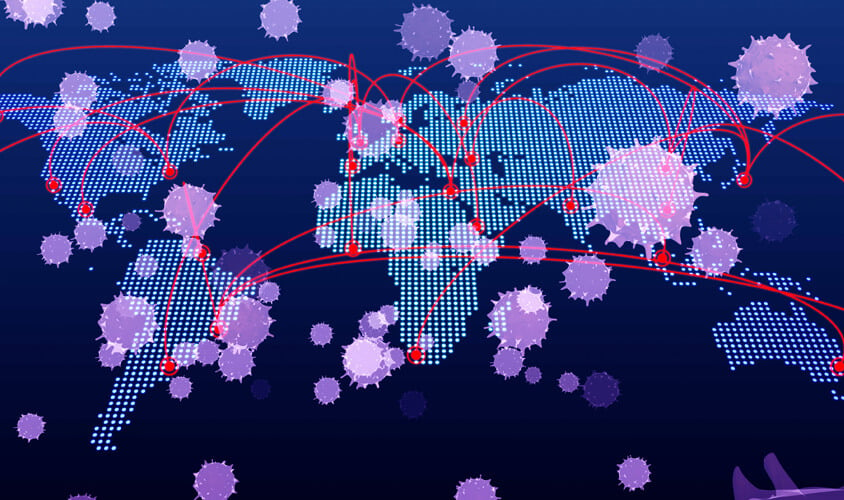Coronavirus and Conflict: The Pandemic’s Potential Global Impact
In a world with no shortage of civil unrest, the coronavirus pandemic could stir further destabilization even after the virus is contained, according to the International Crisis Group (ICG), a global nonpartisan organization that provides analysis and advice on conflict prevention and resolution.
In a recent analysis, COVID-19 and Conflict: Seven Trends to Watch, the ICG discussed the early signs of the pandemic’s impact on countries around the world, and how these situations may evolve in the future in terms of political destabilization and civil unrest.
Increasing Risk of Political Instability
The pandemic has already spurred social unrest in many places, and this could become a significant destabilizing force in some countries if it continues to grow.
For example, in Colombia there have been incidents in which angry looters attacked food trucks in route to poverty-stricken Venezuela. Roughly two-dozen people were killed in a jailbreak attempt amid prisoner protests regarding lack of protections against COVID-19. In Ukraine, protesters attacked buses carrying Ukrainian evacuees from Wuhan, China, in response to allegations that some were infected with the disease.
Global Crisis Management May Be Set Back
Travel restrictions may continue to hamper international conflict resolution efforts. For example, the International Contact Group on Venezuela, a group of European and Latin American states advocating for a diplomatic solution to the Venezuelan political crisis, cancelled a recent meeting in Caracas for COVID-related reasons.
In addition, United Nations' diplomatic envoys in the Middle East have been blocked from travelling in the region due to airport closures. Overall, the uncertain length of travel restrictions casts a shadow on conflict resolution progress, as high-level diplomatic conferences cannot always be held on a virtual basis due to security risks and other reasons.
At-Risk Populations May Become More Vulnerable
For citizens living in countries already rife with conflict and instability, the coronavirus could add to their hardships, with uncertain results. In Libya, for example, the health care system is close to collapse due to COVID-19 and factors that came before the virus, such as corruption. Although the government in Tripoli has pledged roughly $350 million to respond to the disease, an oil blockade has put the source of the funding, oil revenues, in question.
In Iran, the internal damage caused by the government’s slow response has been compounded by the effects of the economic sanctions imposed by the United States due to ongoing conflict. This has caused suffering among the population: the virus is reportedly taking five to six lives every hour.
The Crisis May Be Politically Exploited
Some leaders may order restrictive measures to deal with the pandemic, then extend them in hopes of quashing dissent once the disease declines. Here, there are precedents from West Africa’s Ebola crisis of 2014-2016. At that time, civil society groups and opposition parties in the region alleged that the authorities prohibited meetings for longer than necessary to suppress dissent.
Now, Hungarian Prime Minister Viktor Orban has requested that parliament indefinitely extend a pandemic state of emergency that calls for five-year prison sentences for anyone disseminating false information or obstructing the country’s crisis response. Opponents of the move say it turns a public health measure into an unlawful power grab.
For more information on the coronavirus pandemic and security challenges, visit ASIS International’s coverage on the Disease Outbreak: Security Resources page.
